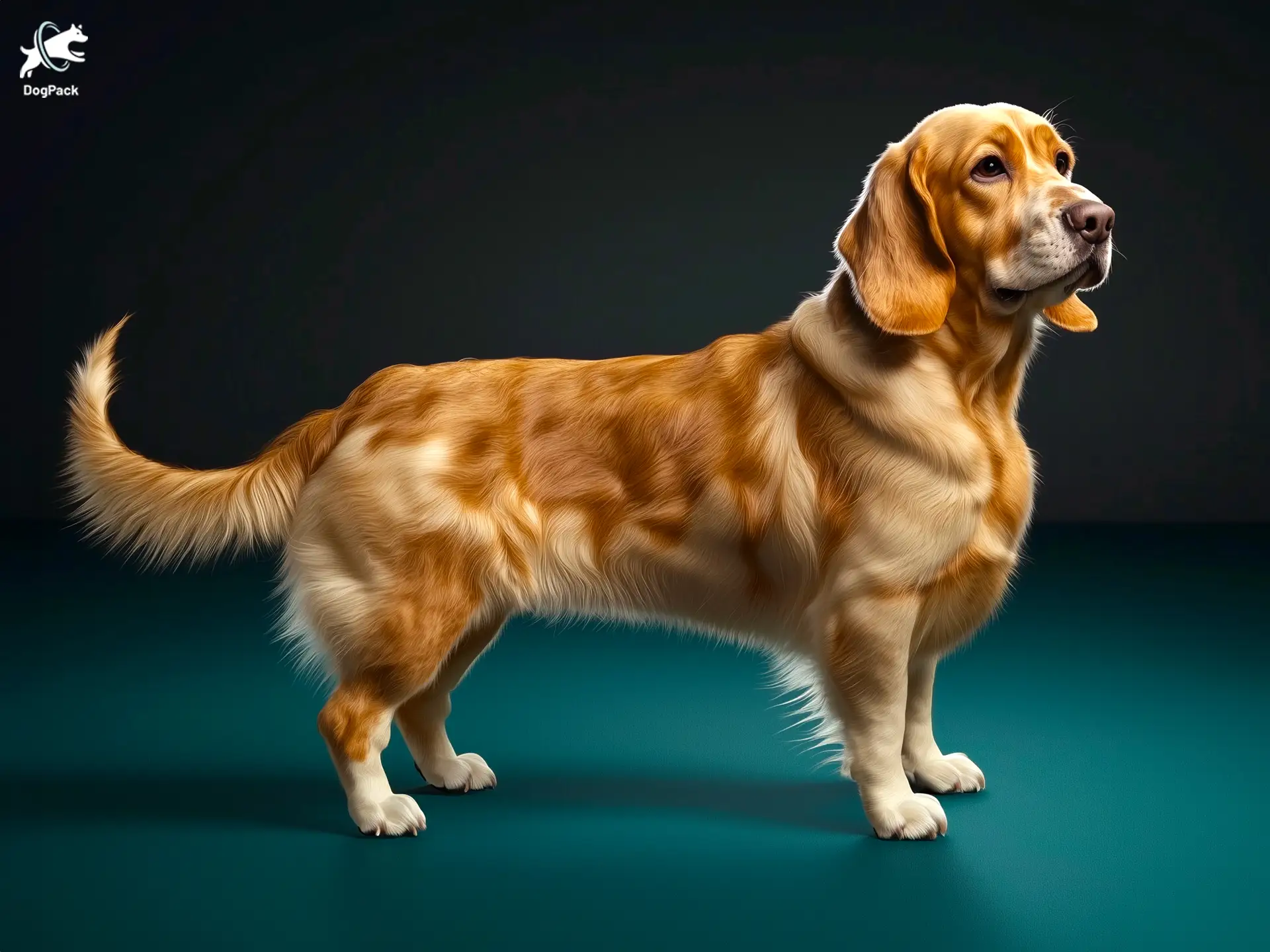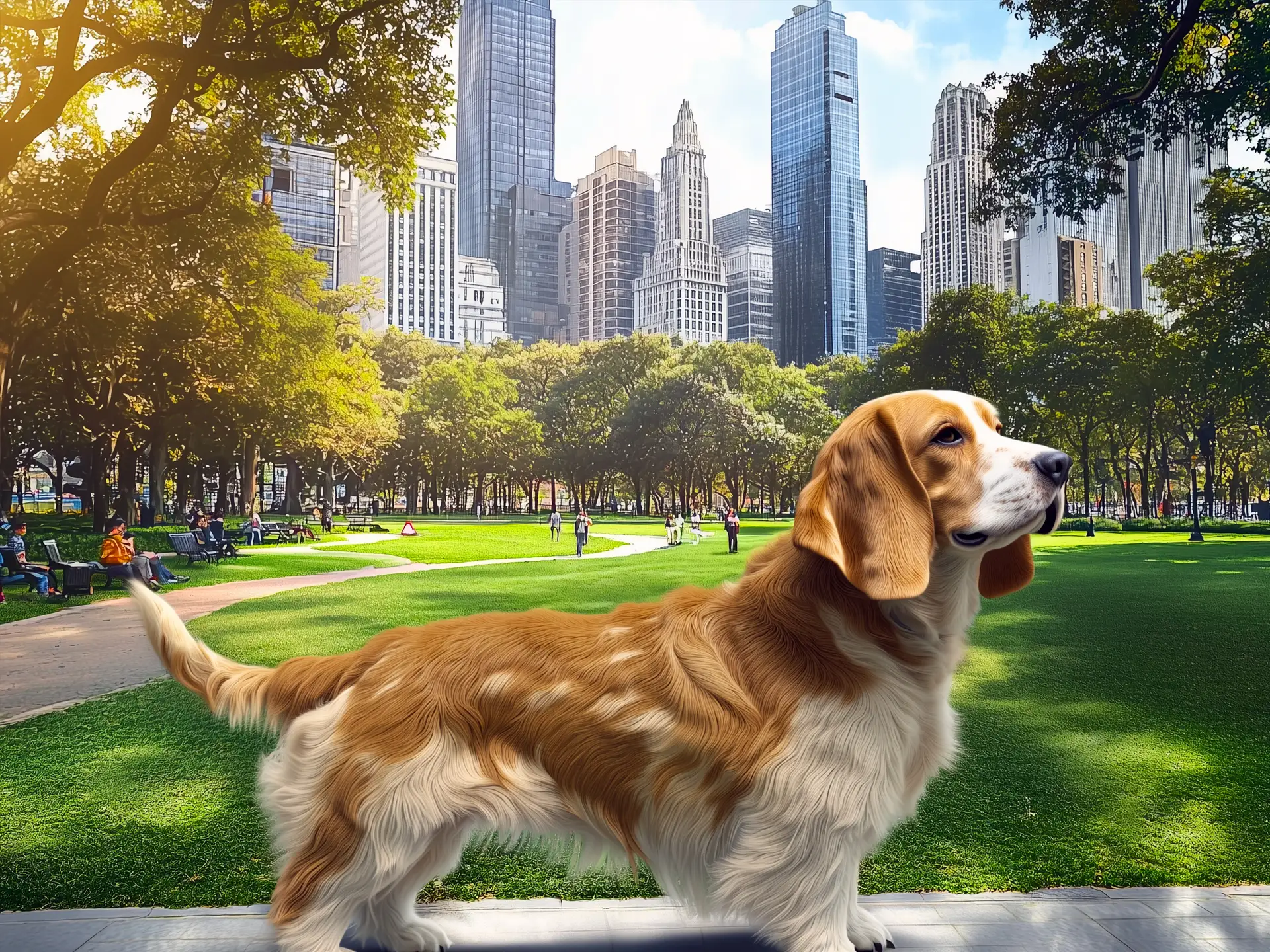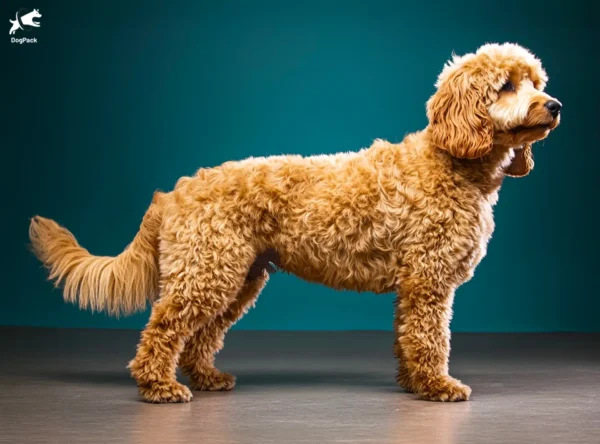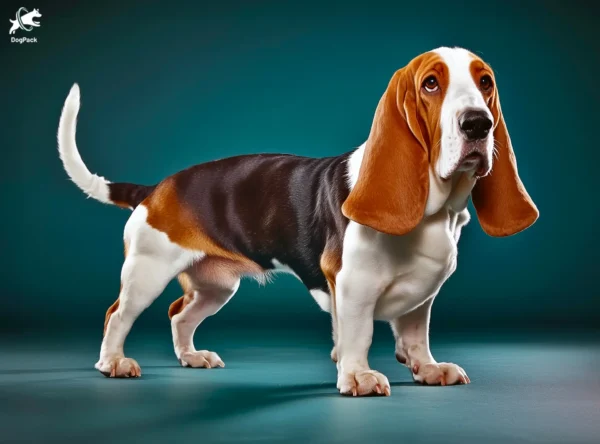Basset Retriever Dog Breed Info & Overview
The Basset Retriever is a delightful blend of the easygoing Basset Hound and the energetic Golden Retriever. This hybrid brings together a perfect mix of calmness and playfulness, making them an ideal companion for both relaxation and adventure. Known for their affectionate nature and loyal personality, Basset Retrievers fit seamlessly into family life, offering both love and a fun-loving spirit that’s hard to resist.
Characteristics
Pictures
Breed History
The Basset Retriever is a relatively new hybrid, blending the Basset Hound’s keen nose with the Golden Retriever’s fetching skills. Originating in the United States, this breed was developed to create a family-friendly dog with a balanced temperament. While not as old as its purebred parents, the Basset Retriever is steadily gaining popularity for its unique blend of traits.
The Basset Hound, known for its exceptional tracking abilities, hails from France and was bred for hunting small game. On the other hand, the Golden Retriever originated in Scotland, developed for retrieving game during hunts. Combining these two creates a dog that’s both attentive and eager to please.
While the exact origins are a bit murky, it’s clear that breeders aimed to create a companion that excels both at home and in the field. The Basset Retriever inherits a rich history from both sides, making it a fascinating breed to learn about.
Temperament, Personality
Basset Retrievers are known for their friendly and affectionate nature. They love being around people and are especially good with children, making them excellent family pets. Their playful side comes from the Golden Retriever, while their laid-back demeanor is a nod to the Basset Hound.
These dogs are sociable and get along well with other pets. They’re intelligent and eager to please, which makes training a rewarding experience. However, they can sometimes exhibit a stubborn streak inherited from the Basset Hound, so patience and positive reinforcement are key.
Strangers are usually met with a wagging tail and a curious sniff. The Basset Retriever isn’t typically aggressive and makes friends easily. Their balanced temperament makes them suitable for first-time dog owners as well.
Physical Characteristics
Sporting a sturdy build, the Basset Retriever often has the elongated body and shorter legs of a Basset Hound combined with the soft features of a Golden Retriever. Their ears are usually long and floppy, adding to their adorable appearance.
The coat is typically dense and may vary from short to medium length, often showcasing the golden hues of the Retriever or the tricolor patterns of the Basset Hound. Their eyes are expressive, often reflecting their gentle and friendly nature.
Size-wise, they fall into the medium category but may appear smaller due to their shorter legs. This unique combination gives them a distinctive look that’s hard to resist.
Health Issues
Like all breeds, the Basset Retriever can be prone to certain health conditions. Common issues include hip dysplasia, which is prevalent in both parent breeds, and ear infections due to their long, floppy ears trapping moisture.
They may also be susceptible to obesity if overfed, so maintaining a balanced diet is crucial. Eye conditions like glaucoma can occur, so regular veterinary check-ups are recommended.
Preventive care, including regular exercise and a healthy diet, can go a long way in ensuring your Basset Retriever lives a happy and healthy life. Always consult with a vet familiar with the breed’s specific needs.
Grooming Needs
The Basset Retriever’s coat requires moderate grooming. Regular brushing—about two to three times a week—helps keep shedding under control and maintains a healthy coat. During shedding seasons, more frequent brushing may be necessary.
Their long ears need special attention. Cleaning them weekly can prevent infections. Dental hygiene is also important; brushing their teeth several times a week can help prevent dental issues.
Bathing should be done as needed, usually once a month or when they get particularly dirty. Using a dog-friendly shampoo will keep their skin from drying out.
Exercise Requirements
While not as high-energy as some breeds, the Basset Retriever still enjoys daily walks and playtime. Aim for at least one hour of exercise each day to keep them mentally and physically stimulated.
They enjoy activities like fetch, thanks to their Retriever heritage, and also appreciate the occasional scent-tracking games, a nod to their Basset Hound side. Interactive toys can also keep them entertained.
Remember, their shorter legs mean they might not be up for marathon runs, but they do enjoy a good romp in the yard or a leisurely stroll around the neighborhood.
Training Tips
Training a Basset Retriever can be a joyful experience due to their eagerness to please. Positive reinforcement methods work best, rewarding good behavior with treats or praise.
However, they may sometimes show a bit of stubbornness. Consistency is key, and keeping training sessions fun and engaging will yield the best results.
Early socialization is important to ensure they grow up to be well-rounded dogs. Expose them to different environments, people, and other animals to build their confidence.
Nutrition, Diet
Feeding a Basset Retriever requires attention to portion control to prevent obesity. They typically need about 2 to 3 cups of high-quality dry dog food per day, split into two meals.
Their diet should be rich in proteins and fats, with a balanced amount of carbohydrates. Omega-3 fatty acids can support their skin and coat health.
Consult with your veterinarian to tailor a diet plan that meets the specific needs of your Basset Retriever, considering their age, weight, and activity level.
Adoption, Breeders
If you’re considering adding a Basset Retriever to your family, adoption is a wonderful option. Check out Petfinder for rescue organizations specializing in this hybrid.
For those looking to purchase from a breeder, ensure they are reputable and provide health clearances for both parent breeds. The American Canine Hybrid Club is a good resource for finding recognized breeders.
Always visit the breeder in person to assess the living conditions and meet the puppy’s parents if possible.
Family Pet?
Basset Retrievers make excellent family pets. Their affectionate nature and patience with children make them a great addition to households of all sizes. They’re known to be gentle with kids and enjoy participating in family activities.
Their moderate energy levels mean they can adapt to different living situations, whether it’s a house with a yard or an apartment setting—as long as they get their daily walks.
They also tend to get along well with other pets, especially when socialized early. Their easygoing temperament makes them a harmonious addition to multi-pet households.
Right For You?
If you’re looking for a loyal, friendly, and moderately active companion, the Basset Retriever could be the perfect match. They thrive in loving environments and are adaptable to various lifestyles.
Consider your ability to meet their exercise and grooming needs. They’re best suited for owners who can provide daily walks and regular brushing sessions.
Their sociable nature means they don’t like being left alone for long periods. If you have the time and affection to give, the Basset Retriever will reward you with endless love and companionship.
Conclusion
In the end, the Basset Retriever offers a delightful mix of charm and playfulness that’s hard to beat. Their balanced temperament and affectionate nature make them ideal for families, seniors, and first-time dog owners alike. If you’re ready to welcome a loving and loyal friend into your life, the Basset Retriever might just be the perfect pup for you.
FAQs
-
Do Basset Retrievers inherit more traits from the Basset Hound or Golden Retriever?
Basset Retrievers can inherit traits from either parent, but they often display a mix of the Basset Hound’s laid-back personality and the Golden Retriever’s playful, energetic nature. Every dog is unique!
-
Can Basset Retrievers live in apartments?
Yes, Basset Retrievers can adapt to apartment living, especially if they inherit the calmer nature of the Basset Hound. However, regular exercise is key to keeping them happy and healthy in smaller spaces.
-
How well do Basset Retrievers do in water?
Given the Golden Retriever’s love for water, many Basset Retrievers enjoy swimming. However, their shorter legs (from the Basset Hound side) might make them less proficient swimmers, so supervision is always advised.
-
Are Basset Retrievers prone to specific health issues?
Basset Retrievers can be prone to joint issues like hip dysplasia and back problems, especially if they inherit the Basset Hound’s elongated body. Regular vet check-ups are essential to monitor their health.
-
How much space does a Basset Retriever need to play?
While they enjoy outdoor activities, Basset Retrievers don’t need large yards. A moderate space to play and daily walks should suffice, making them adaptable to both suburban and urban environments.
Breed Ratings
Basset Retrievers are smart and pick up commands quickly, especially with positive reinforcement.
They love to play and enjoy interactive games with their families.
With moderate energy, they appreciate daily walks but also enjoy lounging around.
Shedding is moderate; regular brushing helps keep it under control.
They have a mild prey drive but may occasionally chase smaller animals.
Grooming is manageable with regular brushing and ear care.
They respond well to training, especially when it’s consistent and reward-based.
They prefer company and may become anxious if left alone for long periods.
Moderate vocalization; they may bark to alert or when excited.
Drooling is minimal but can increase after eating or drinking.
Very sociable with other dogs, especially when socialized early.
Generally healthy but watch for breed-specific health issues.














